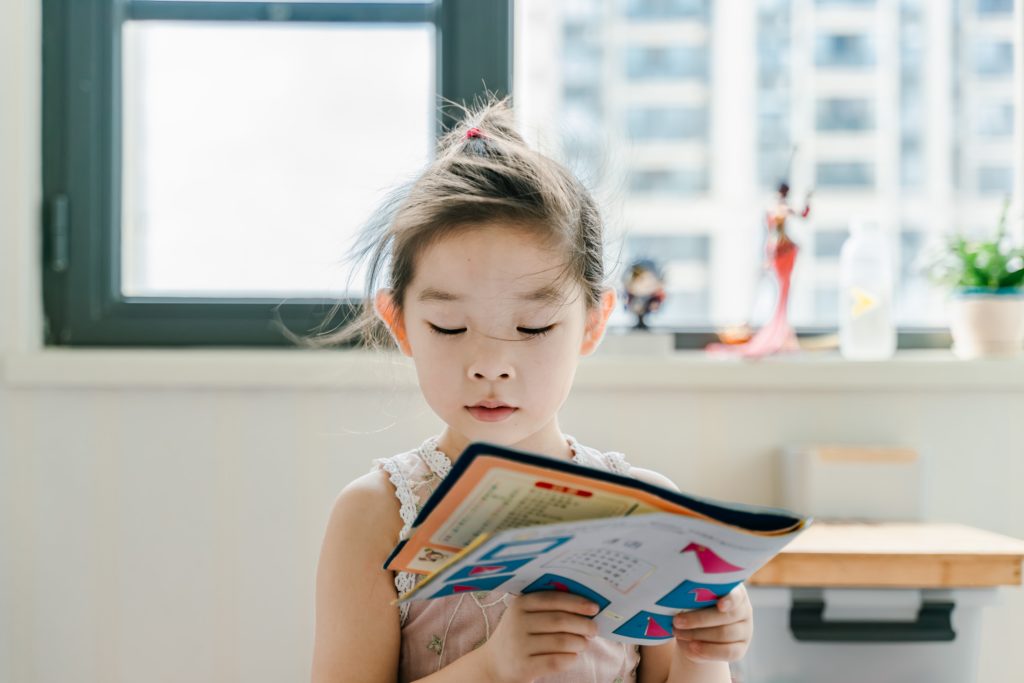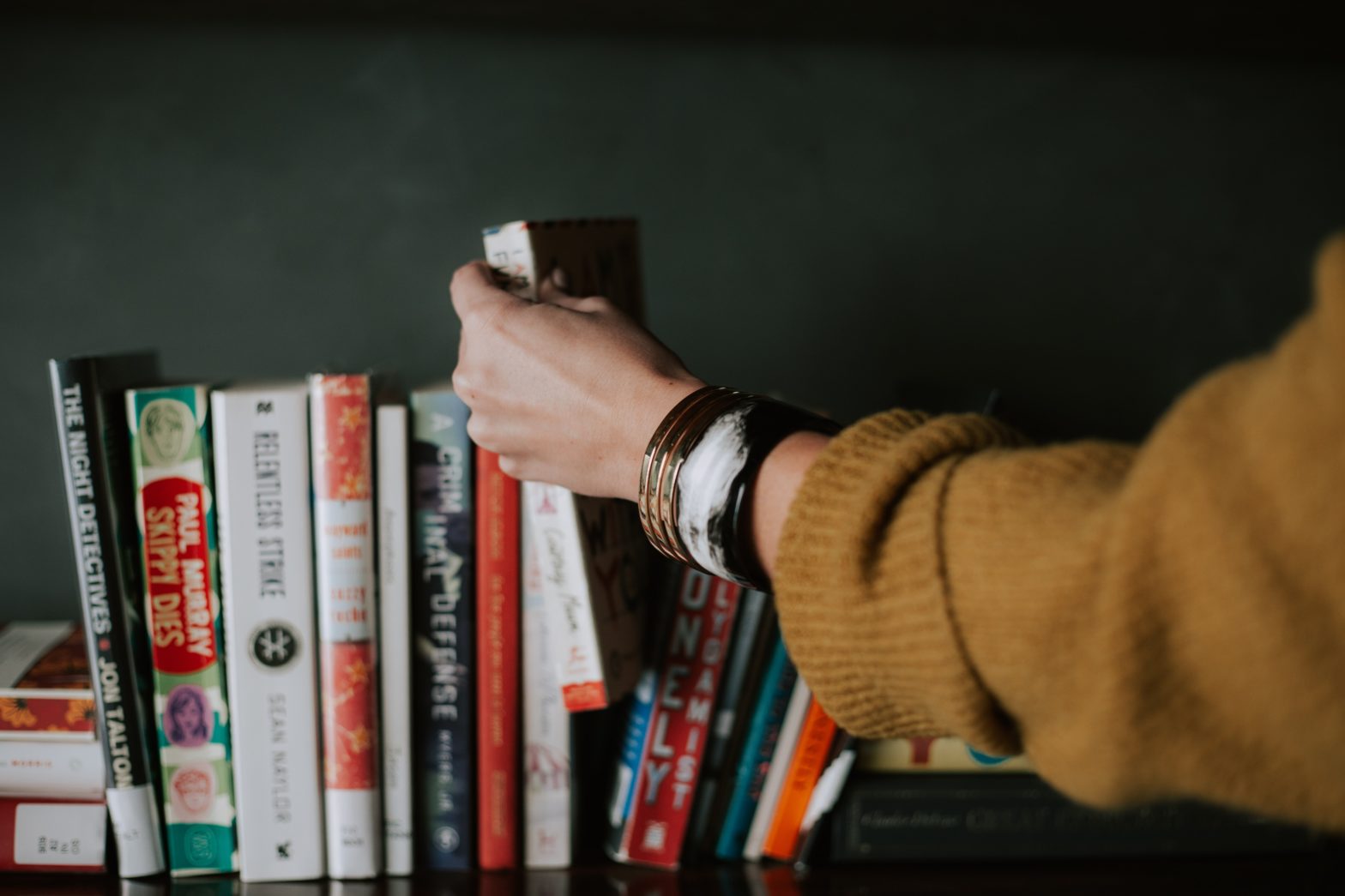On Friday 2/26, Hope College featured a live virtual visit with author Kwame Alexander in conjunction with national Black History Month*. The virtual talk was entitled, “Light for the World to See: A Conversation with Kwame Alexander.” Alexander’s visit was a collaborative effort of several Hope organizations: the NEA Big Read Lakeshore, Black Student Union, Center for Diversity and Inclusion, Ruth Tensen Creative Writing Fund, Cultural Affairs Committee, Department of Education, and Jack Ridl Visiting Writers Series.
On the heels of Kwame Alexander’s Big Read presentation, Dr. Jesse Montaño shares about National Reading Month, and an exciting new collaboration between Hope College faculty and students (past and present) and Ready for School, via a grant from the Hope College Mellon Community-Based Partnership Initiative.
Welcome March—National Reading Month! Time to trot out the “green eggs and ham,” and don a costume at a reading-inspired party to celebrate the power of reading! As you may or may not know, March was chosen for National Reading Month because it marks the birthday of celebrated children’s book author Theodore Seuss Geisel, best known to us as Dr. Seuss.
As we celebrate National Reading Month this year, we highlight a new collaboration between Hope College faculty and students (past and present) and Ready for School, via a grant from the Hope College Mellon Community-Based Partnership Initiative. This collaborative grant will promote reading and kindergarten readiness among the youngest kids in our community. Ready for School, a non-profit, community organization in greater Holland, was established in 2008 to meet a critical need: preparing children for success in kindergarten. Over the last decade, collaborative efforts in health, education, and public awareness have yielded success, increasing the level of readiness from 43% in 2009 to 70% in 2019. Even with this success, disparities in kindergarten readiness currently exist in our community. Our initiative, “Stories of Equity and Hope,” draws on the power of stories to improve our understanding of what barriers exist, why they exist, as well as how best to move forward.

In the coming weeks, the grant team will collect stories from local families and community members on ways to address kindergarten readiness and reading. These stories center knowledge that emanates from those who daily navigate the challenges that impede kindergarten readiness. We are convinced that solutions involve seeking these stories from disparate perspectives and listening to them attentively. In amplifying diverse voices in our community, we likewise alleviate ugly hierarchies of human value by honoring the dignity of all involved. Put another way, the sharing of stories and the listening attentively to them centers the simple humanity of tellers and listeners.
Alongside our community story-gathering efforts, “Stories of Equity and Hope” will feature reading circles, a suggested reading list, and virtual read-aloud storytimes around the works of noted children’s author, Kwame Alexander. Families in the community will receive copies of Alexander’s Indigo Blume and the Garden City. Young readers will be encouraged to grow plants and flowers in emulation of the Indigo’s garden city project, as they consider the growth of plants as well as other kinds of growth. As character Woody Bark professes in the picture book, “plant the seeds of faith and love, and let nature do the rest.” Videos showing community members reading Indigo Blume and photographs from the plantings will soon come your way.

The grant team chose the work of Kwame Alexander, as well as other diverse authors and artists, to foreground the importance of intergroup justice and racial reconciliation in our local and our national communities as a part of kindergarten readiness. Even as we begin this post by citing to the significant work of Dr. Seuss in promoting reading, we call attention to the ways in which hidden forms of racism exist in all facets of our society and in all parts of our lives. As scholar Philip Nel has persuasively argued in his book, Is the Cat in the Hat Black?, Geisel was directly influenced by minstrelsy and blackface caricature in his illustrations of The Cat in the Hat and in his depiction of Cat’s actions. While we have known for some time that the Cat’s sly, secretive smile and the color of his skin was based on Annie Williams, an African-American woman who worked at Houghton Mifflin, the publishing house for The Cat in the Hat, what Nel reveals is the dogged ways in which racist images and ideas persist in our collective imagination. As Nel points out, Geisel knew of minstrelsy from a young age, having written and acted in blackface while in high school and having created minstrel-inspired images into his early career. By the time of the picture book’s composition, however, Dr. Seuss actively spoke out against racism. The moral to this fable, it seems, is that we need be attentive to hidden forms of racism and their purview in our communities. When the grant team considered books to highlight in our reading and kindergarten readiness initiatives, therefore, we intentionally chose books that offer counter-stories to deleterious and noxious stories and ideas. In this way, our project contributes to anti-racism efforts.

As we celebrate National Reading Month, with all of its pageantry and possibilities, we also congratulate faculty Susanna Childress, Regan Postma-Montaño, Llena Chavis, Har Ye Kan, and Jesus Montaño on recently being awarded funds by the Mellon Community-Based Partnership Initiative to support work on reading and kindergarten readiness in our community. Thanks to these faculty, Hope students, and Ready for School staff and family partners for joining us on this exciting project!
–
*Special Note: If you were unable to attend Kwame Alexander’s live streamed event on Friday 2/26 and would like to watch it, please email the Center for Diversity and Inclusion at diversity@hope.edu. A one week link to the recorded event is available. It is only open to those with a Hope College email address.


